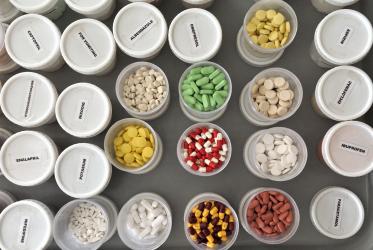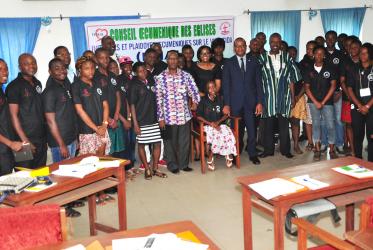Affichage de 341 - 360 de 432
Voices from HIV workshop reflect deep impact
07 Avril 2016
In Albania, churches’ share of health care has grown in new era
23 Décembre 2015
Person with disability shares reflection on AIDS conference
10 Décembre 2015
Placing family in the HIV response vanguard
10 Décembre 2015
Overcoming discrimination to address HIV in Zimbabwe
11 Novembre 2015






